Everyone who raises a cat at home will observe that the cat's temper is also strange.
It may be quiet and cold, staying in one place all day, and even when the owner comes home, he doesn't even look at it. It may also be lively and clingy, full of energy every day, and spin around the owner, often making people wonder whether it is a human being or a cat sucking. There are also some cats who switch back and forth between being timid and being lively and active, and are active at home, and their temperament changes drastically after going out, and they become timid and cautious.
When encountering a cold cat roommate, humans want to show their enthusiasm but always hit walls again and again. Not only does they not improve the relationship between the two parties, they will also force the kitten to hide around at home.
E person is paired with I cat, and both the cat and the owner are crazy. When the owner faces the complex and changeable personality of the cat, he will often be confused.
Does kittens also have their own personality?
People have personality, cats have cats
Open the social network and you can always see a group of E people singing KTVs. The first time you meet is like a brother and sister who have been separated for many years, singing and dancing one by one; while the I people hiding in the corner muster up the courage to pick up the microphone, but sing the hi song into a folk song.
MBTI is actually not a reliable personality testing tool, but the popularity of MBTI also reflects everyone's simple observation of human personality traits, that is: people's personalities are rich and diverse. This makes people wonder, do kittens also have rich and diverse personality traits like humans? Is there also a distinction between "I cat" and "E cat"?
Kittens also have personalities. A study from the School of Life Sciences at the University of Lincoln, UK, found through monitoring and statistics on domestic cat behavior that cats have self-characteristics.
Personality refers to the stable differences in individual behavior patterns, and is sometimes called temperament. Certain behaviors of cats, such as arching back, erecting ears, curling, etc., can express their emotions as signals.
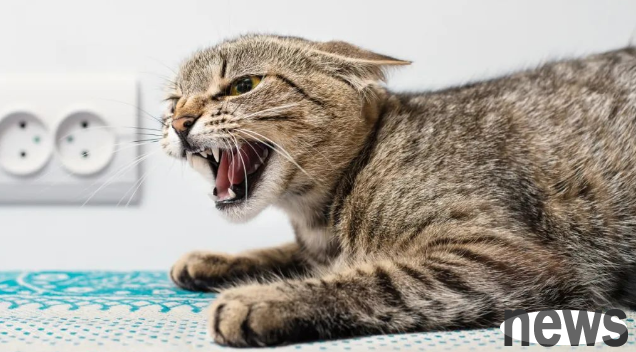
The crazy and furious cat has entered a state of fighting, and the cat has quickly run / Visual China
The cat uses arched back, fur and furious behaviors to express its fear. If you encounter a cat who turns into a hedgehog on the roadside, don't think it is saying hi in a friendly manner.
If there are five major personalities in humans, then cats also have five major cat characters. In a joint study by Victoria University of Wellington and the University of South Australia, cats have five distinct personality traits.
Through the 2802 questionnaires collected, the researchers found that cats have five reliable personality traits, namely: neurotic, extrovert, dominant, impulsive and affinity.
Nervousness means that cats are sensitive, anxious, afraid of people and shy; extroversion means that cats are active and active; dominant means that cats bully and control other cats; impulsive means that cats are moody and rude; affinity means that cats are gentle and friendly to people. Among them, dominance, extroversion and affinity are the three main personality traits of cats.
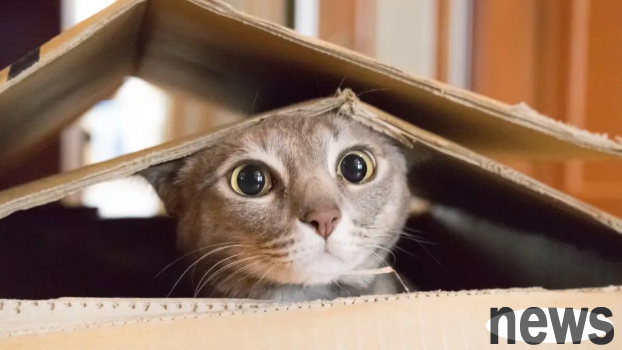
Nervous kittens will hide and seek at home. When their owners come in every day, they think: "Where is my cat? Where is my cat? Where is my cat?" / Visual China
For example, neurotic cats prefer to hide and seek in the corners of the house, which always makes people wonder if they really have cats? Affinity cats are usually closer to humans, and they stay on the chest whenever they have the chance. When they can't get up in one breath, even cat slaves are thinking, which is really a sweet burden; as for dominant cats who look down on other similar people at home, they may think about it every day, "I vow to be the boss."
Personality is in DNA
In the current academic research progress, researchers believe that cats' personality is affected by many factors, and age and breed are the main factors. Focusing on these factors helps owners understand and improve the living conditions and health of pet cats.
In the above study, scholars found that cats' personality is related to age. Older cats are less active and negative, and scored lower on the indicator of extroversion. This type of cat needs to pay special attention to health issues.
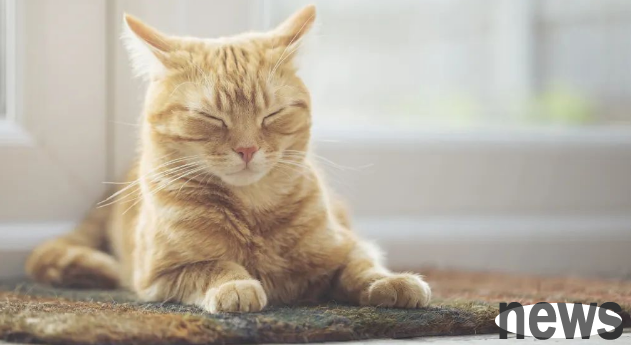
Older cats don't like to move / Visual China
Seeing that the cats at home are lazy all day long, in addition to taking them to the pet hospital to confirm their health status, you can also calculate with your fingers whether the mumi is unable to move when she is old.
In addition to age, the differences in breeds indicate to a certain extent that cats have genetic correlations, and cats of different breeds show a large contrast in personality.
It is usually believed that the personality of Chinese pastoral cats is related to their fur color. For example, if a cow cat is nervous, an orange cat is steady, but it is not the case. Although cats use behavior to express emotions, the study found that there is no significant correlation between domestic cats' fur color and aggressive behavior. There is a certain correlation between the fur color and breed of cats, but not all breeds have obvious fur color characteristics. Therefore, it is not scientific to judge whether a cat is gentle or irritable by simply coloring her hair.
The role of genetics on personality is mainly reflected in the differences between different breeds.
According to the study published in the journal Animals, scholars from the University of Helsinki surveyed 4,300 domestic cats in the UK. The data showed that different breeds of cats have differences in sociality, play tendencies, enthusiasm and affinity, and Bengal cats show a more active relative temperament.
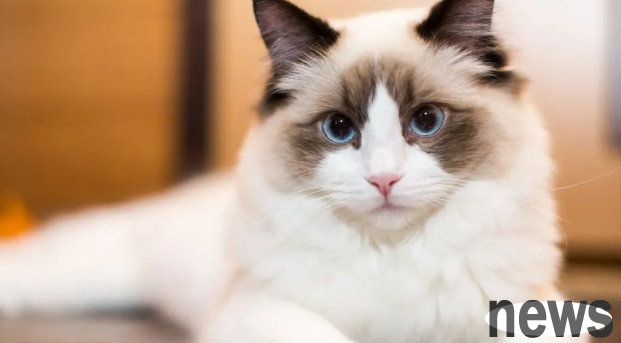
The well-behaved and sweet ragdoll cat has a full face that says the years are quiet / Visual China
Scholars from the Institute of Veterinary Medicine of the University of Tokyo have included more cat breeds into the research scope. They found that Maine cats have a more docile personality, Abinesian cats have a more lively personality, and the same quiet cat breeds include Ragdoll cats and Persian cats..
After reading the current research conclusion, do you guys and guys have their own dream cats?
Develop a dream cat with your own hands
The character of a person will be more or less affected by the family during his growth, and domestic cats are no exception. In addition to age and breed factors, the owner's behavior and personality will also subtly affect the personality of the domestic cat. Those B-ultrasound pictures posted on social media all day long, yelling that the kitten is their biological owner, makes sense, and the cat looks like the owner.
Most cats like to live alone, and independence is the nature of cats. When a cat who enters family life as a companion pet, its living conditions are very different from those in the wild. Interaction with humans will also shape the cat's personality.
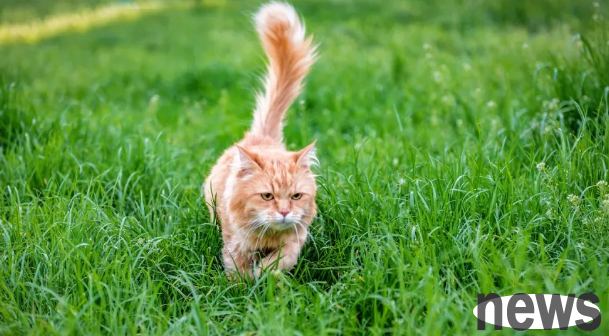
When untamined cats live in the wild, they are basically lonely Mavericks / Visual China
Researchers at Lincoln University incorporated their owner's personality traits into the experimental data. By issuing the BFI personality questionnaire, the "Five Cat Personality" method is also adopted to evaluate the personality of the cat owner using five characteristics, namely affinity, responsibility, outgoingness, neuroticity and openness.
According to the 3165 valid questionnaires collected, the researchers found that the higher the extroversion score of cat owners' personality, the higher the sociopathy score of cats' personality, showing a positive correlation; the higher the cat's indifference and avoidance score, and the owner's affinity is also significantly lower. If the owner has a higher level of neuroticism, domestic cats will also show more anxious emotions and more aggressive behaviors.
The health and behavior of cats are closely related to the owner's personality, similar to the relationship between parents and children in human families. As a family member who lives together, the owner's personality will affect the cat's personality.
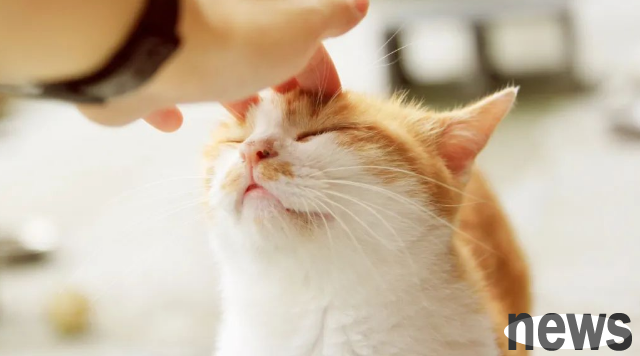
The owner's personality will affect the cat's personality. Keeping emotional stability is good for people and cats / Visual China
Emotions can be contagious like viruses, and even affect kittens. The owner of ENTP personality, the kitten at home is likely to be a chatterbox social expert.
Getting along with the owner is an important way to socialize domestic cats. The process of socialization requires the owner to have more patience and understanding of cat knowledge.
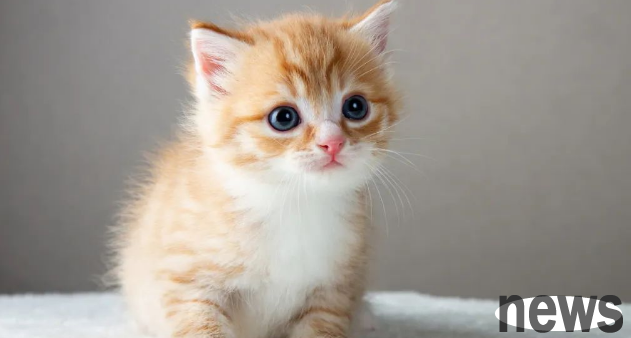
The childhood period of cats is the best stage of socialization, and owners can hurry up / Visual China
Research from the Veterinary Surgery and Behavior Laboratory of Gyeongsang University in South Korea shows that the lower the degree of socialization of cats, the higher the sensitivity to the environment.
Cats with low socialization will show more aggressive behaviors, such as biting people at any time, or rushing around at home endlessly, which may be the reason why humans recognize cats with poor personality.
As a pet cat, the domestic cat spends most of the time at home with the owner. The emotions and behavior of cats are affected by interactions and contact with people, and the cat’s personality can be cultivated through interactions with its owner.
Cats are adjusted according to their owner's emotions, a study from the University of Vienna proved this view. 36 groups of owners and pet cats were screened out in the
experiment and randomly divided into two groups. One group shows positive information to the cat, such as food; the other group shows negative information to the cat, such as sound.
Researchers observed that cats were more likely to show positive emotional interactions with humans. No wonder, as long as the owner who comes home from get off work excitedly takes out the new toy, he will definitely attract the kitten to have a happy time.
Cats are the best time for socialization in childhood. The owners show more affinity and tolerance, which is conducive to domestic cats forming a gentle personality for their relatives and also helping to improve cats' well-being.
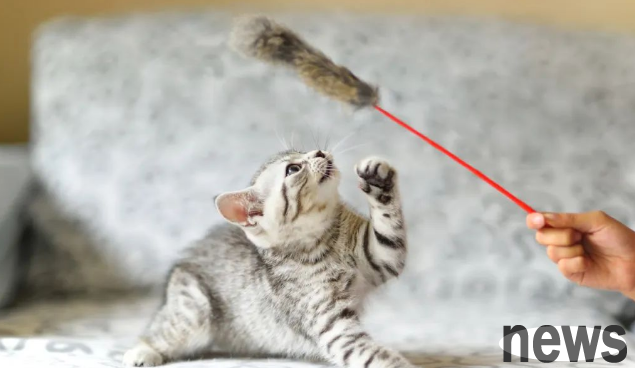
Extroverted kittens need more company, and playing with them regularly helps release energy / Visual China
For sensitive and shy cats, you might as well put more cardboard boxes and cat crawlers at home so that they can hide and seek happily and gain more sense of security to reduce sensitivity and aggression; for extroverted cats, you can buy more cat toys and accompany curious babies to release their energy, which is conducive to harmonious coexistence of humans and cats on sleep issues.
Meow when going out, I am shouting for help
If the owner does homework for different breeds when choosing a cat and is gentle and tolerant at home, why do cats with great choices and careful care still meow and attack humans? Are there any important character triggers that have been ignored?
Environment will affect the cat's personality. Not only will the personality of domestic cats of the same breed and stray cats be very different, but the personality of the same cat may also change when it comes to different occasions.
Anyone who has raised a cat knows that cats are very worry-free pets and can spend most of their time entertaining themselves. However, it is impossible for domestic cats to never leave the familiar environment for the rest of their lives. After all, the owner can take a bath, but they always have to go out to the pet hospital for treatment.
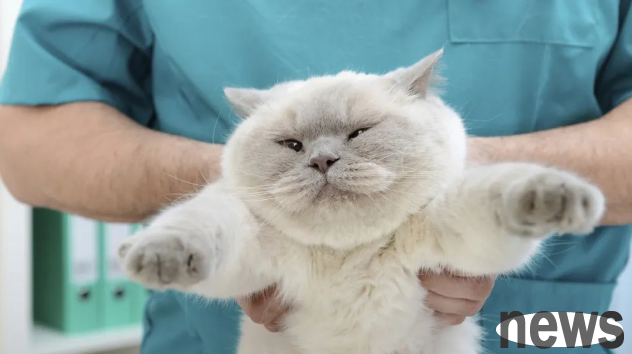
The cat who was seeing a doctor in a pet hospital had a happy face / Visual China
The gentle and cute cat at home was like a change of a cat when he arrived at the pet hospital, screaming at the doctor and punching the nurse.
That's because cats are very timid animals, very sensitive to environmental changes, and often have stress behavioral responses, especially when going out for medical treatment or short-term hospitalization. Among them, meowing exclamation is a way for cats to seek attention. Therefore, the cat suddenly changed his temperament and the crazy meowed may have had a stress reaction. The translation is: Save me, save me!
A survey experiment by the Chinese Academy of Agricultural Sciences in 2021 confirmed that the scene has a significant impact on whether cats develop stress behavior. Researchers screened out 222 domestic cats as research subjects to investigate the occurrence of 10 stress behaviors that occur during home travel. Whether indoors or outdoors, as long as you walk out of the familiar living space of the cat, you are likely to experience stress behaviors with a drastic change in personality..
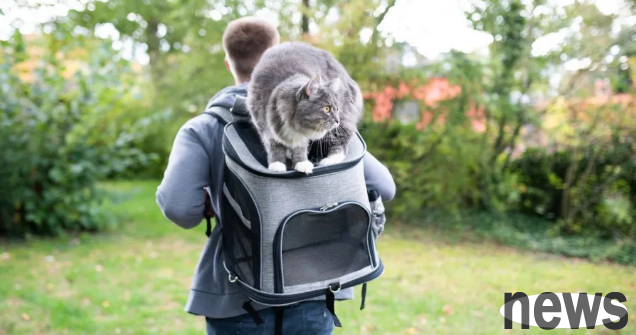
The cat following the owner went out, posing a defensive posture, standing on the cat's bag vigilantly, observing the surrounding environment / Visual China
Compared with the indoor test scenario, the incidence of domestic cats hiding out in outdoor test scenarios has increased significantly, and the probability of meowing reached 63.1%.
The little cat with her tail clamped and her ears frantically looked like the "I" person who was eating vegetables with her head down at the company's annual meeting, but was suddenly named by her leader. It seems that the outside world is wonderful, and the outside world is also dangerous. Social fear and kittens have a deep sense of this.
An interesting discovery is that the personality changes of breed cats and pastoral cats when going out are also significantly different.
idyllic cats have the largest changes in behavioral responses and indicators to stress stimulation, followed by British shorthair cats and the smallest, which is consistent with the results of another study.
This may be what the cat teaching often says: "Although pastoral cats are good, breed cats are more fragrant!"